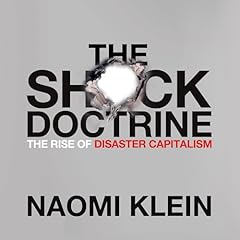
Reconsidering Reparations
No se pudo agregar al carrito
Add to Cart failed.
Error al Agregar a Lista de Deseos.
Error al eliminar de la lista de deseos.
Error al añadir a tu biblioteca
Error al seguir el podcast
Error al dejar de seguir el podcast
Obtén 3 meses por US$0.99 al mes
 Exclusivo para miembros Prime: ¿Nuevo en Audible? Obtén 2 audiolibros gratis con tu prueba.
Exclusivo para miembros Prime: ¿Nuevo en Audible? Obtén 2 audiolibros gratis con tu prueba.
Compra ahora por $19.10
-
Narrado por:
-
Amir Abdullah
Reparations for slavery have become a reinvigorated topic for public debate over the last decade. Most theorizing about reparations treats it as a social justice project—either rooted in reconciliatory justice focused on making amends in the present; or, they focus on the past, emphasizing restitution for historical wrongs. Olúfemi O. Táiwò argues that neither approach is optimal, and advances a different case for reparations—one rooted in a hopeful future that tackles the issue of climate change head on, with distributive justice at its core. This view, which he calls the "constructive" view of reparations, argues that reparations should be seen as a future-oriented project engaged in building a better social order; and that the costs of building a more equitable world should be distributed more to those who have inherited the moral liabilities of past injustices.
This approach to reparations, as Táiwò shows, has deep and surprising roots in the thought of Black political thinkers such as James Baldwin, Martin Luther King Jr, and Nkechi Taifa, as well as mainstream political philosophers like John Rawls, Charles Mills, and Elizabeth Anderson. Táiwò's project has wide implications for our views of justice, racism, the legacy of colonialism, and climate change policy.
©2022 Oxford University Press (P)2023 TantorLos oyentes también disfrutaron:




















Las personas que vieron esto también vieron:



Táíwò traces the history of slave trading and slave rebellions through Haiti, Brazil, and the US South to address the core moral issues of transatlantic slavery and colonialism. The author demonstrates that capitalism as we know it today would not and could not exist without the chattel slavery that established it—remove the lower cost of slave labor in preceding centuries, and there would be a different world economy today. That economy is one aspect of today's society that Táíwò proposes changing. The solution can include market activities without the dominance of an elitist class.
A key point that Táíwò emphasizes is that the solution is not a simple binary, that of all wronged and all doing the wrong. In many respects everyone is part oppressed and part oppressor—however none of that negates the degree to which that is so between the circumstances of those who are economically white and others who are not. In the end we're all human, and that's the key—it's time we act like it.
To accomplish that goal, Táíwò asserts that we need new translocal ways of thinking and acting across separate geographic and political contexts and boundaries—outside the formal levers of power. Táíwò properly insists that reparations for global racial empire should make tangible differences in people's lives. This involves a fair distribution of benefits and burdens, based on the relationship of each to the core moral wrongs. Protection from elite capture of public movements is essential—cultural appropriation should be guarded against along the way.
This is not a zero sum winners and losers proposal. Although it will take a long arc to repair the damages from colonialism, it's imperative to proceed on this journey now. We should advance this Constructive view as much as possible in each generation—the result is to enlarge the humanity of all of us.
To enlarge the humanity of all of us
Se ha producido un error. Vuelve a intentarlo dentro de unos minutos.
It’s a shame as the book itself is extremely good.
Excellent book badly narrated
Se ha producido un error. Vuelve a intentarlo dentro de unos minutos.


